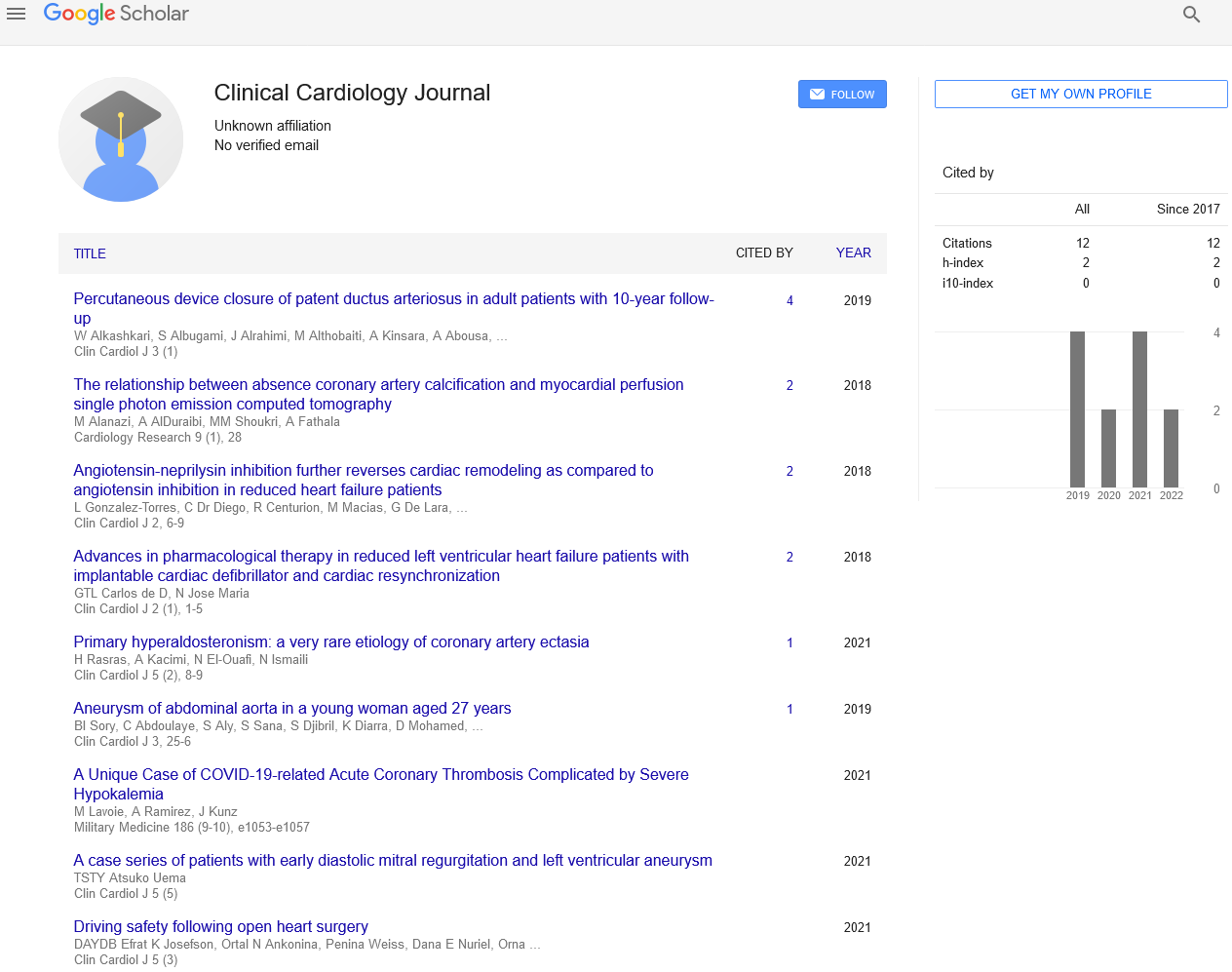Emerging treatment for heart problems
Received: 10-May-2021 Accepted Date: May 15, 2021; Published: 20-May-2021
Citation: Udayan KS. Emerging treatment for heart problems. Clin Cardiol J 2021;5(3):1.
This open-access article is distributed under the terms of the Creative Commons Attribution Non-Commercial License (CC BY-NC) (http://creativecommons.org/licenses/by-nc/4.0/), which permits reuse, distribution and reproduction of the article, provided that the original work is properly cited and the reuse is restricted to noncommercial purposes. For commercial reuse, contact reprints@pulsus.com
Editorial
Ischemic heart disease is a significant cause of death globally, and cardiovascular disease is the leading cause of death. The endocardium on the inner surface of the heart's blood-filled chambers is one of the major contributors to the development of coronary vessels that nourish the heart. Since the endocardium-to-coronary vessel transfer is blocked by a connective tissue wall underneath the endocardium in normal conditions, the adult heart can no longer produce new blood vessels from the endocardium.
The use of renin-angiotensin system inhibitors and -blockers in the treatment of myocardial diseases has significantly improved prognosis. These treatments, however, are non-specific, and with the exception of a few, radical treatments tailored to the cause of each disease have only recently been created. However, in the last decade, more targeted and upstream therapies havebeen developed. Some of the effects have already been established in medical studies and accepted. The mechanism of action and clinical evidence of novel therapeutic agents for myocardial diseases such as dilated cardiomyopathy, hypertrophic cardiomyopathy, Fabry disease, cardiac amyloidosis, and myocarditis are discussed. Vascular formation may be stimulated by injecting progenitor cells, growth factors, or stem cells locally. Acute myocardial infarction (MI) stem cell therapies are still a hot topic of science, with some promising findings.
The Reinfusion of Enriched Progenitor Cells And Infarct Remodeling in Acute Myocardial Infarction (REPAIR-AMI) study looked at 204 patients with acute ST-elevation MI (STEMI) and found that those who received intracoronary progenitor cell infusion had a greater improvement in left ventricular ejection fraction (LVEF) than those who received placebo.





